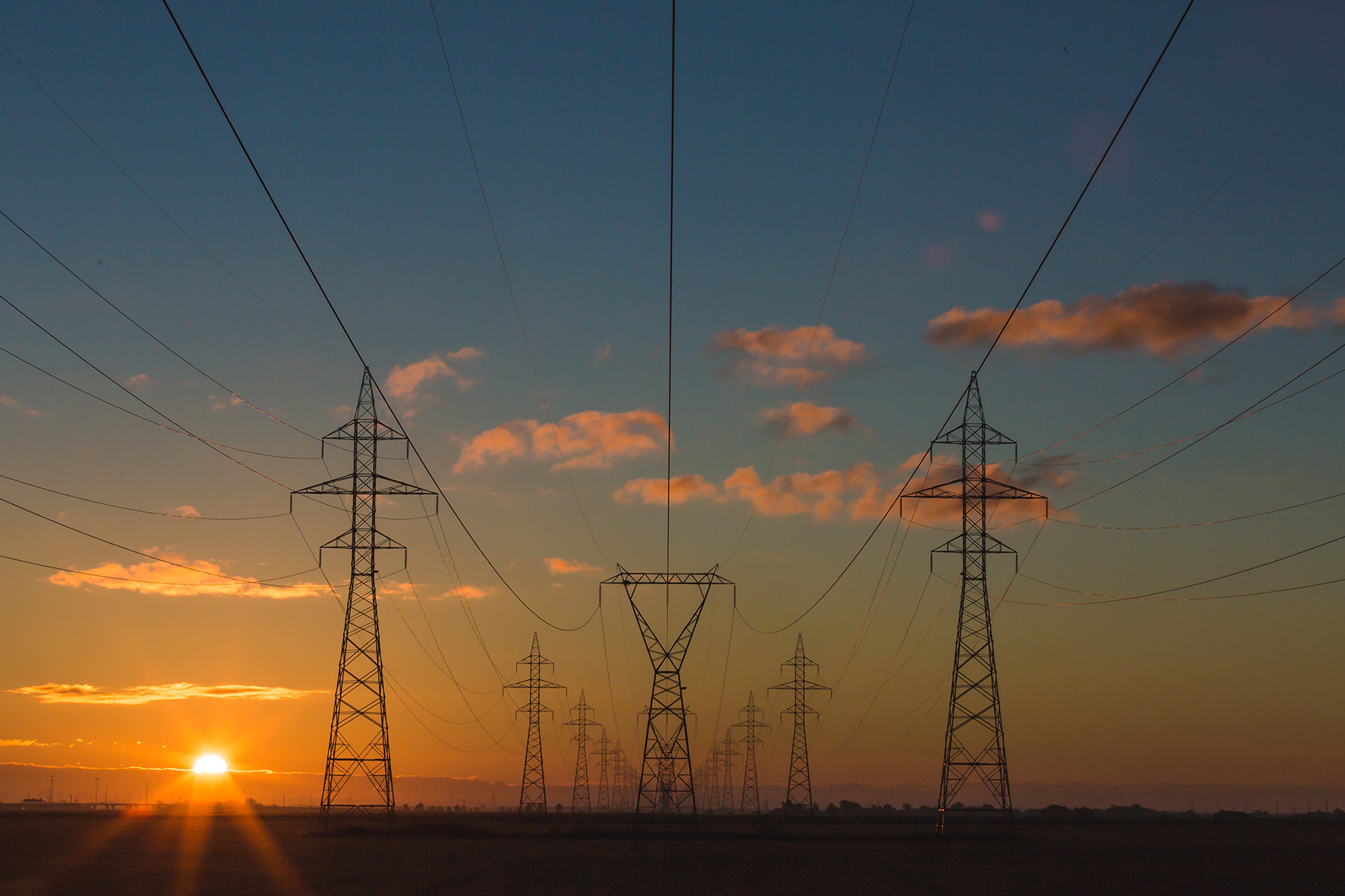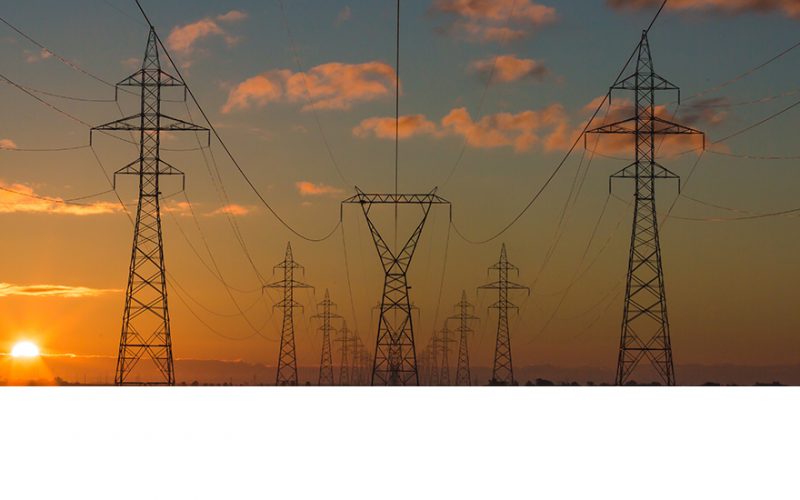Georgian electricity market surges forward toward green energy, EU compliance
A recent package of laws passed by the Georgian parliament will see the establishment of an energy exchange and serious commitments to green energy production.

Cheaper electricity, greener energy, cuts to pollution, incentives for investors, boosts for exports and last but by no means least serious points in the eyes of the European Union – all this comes with the government’s new electricity market program, much of which seeks to fulfill requirements for European Union accession.
Key to Georgia’s move to green energy, as 2020 begins the Ministry of the Economy and Sustainable Development has announced a new energy exchange, a new energy head, new players and new regulations.
In a December 2019 report headlined “Georgia leapfrogs from outdated energy market framework to Third Energy Package”, the EU Energy Community applauded the Georgian Parliament’s adoption of the Law on Energy and Water Supply and the Law on Renewable Energy Sources.
The first law will launch the development of an independent, competitive and liquid energy market, and the second sets the national target for renewable energy at 35 percent of total final consumption by 2030, which will largely address Georgia’s reliance on natural gas to provide for its heating needs, given the country is mostly self-sufficient when it comes to electricity generation thanks to its hydro-power plants.
The aim of the Third Energy Package is to “open gas and electricity markets in the EU”. These are to be followed by laws setting energy efficiency targets, encouraging energy savings, tightening regulations on energy efficient buildings and mandating energy consumption labelling on consumer electronics.
Towards compliance with EU energy legislation
These laws should help Georgia move towards fulfilling its obligations before the EU as taken on in signing the Deep and Comprehensive Free Trade Agreement.
As far as EU membership is concerned, the position was set out very clearly by the Georgian president of the EU’s Energy Community Regulatory Board (ECRB) Giorgi Pangani, who emphasized at a recent press conference, “There is no chance of becoming an EU member until you have fulfilled all the criteria of the Energy Community; this is something that cannot be avoided.”
He added: “Believe me that no European investor will look at the country if the legislation is not …. harmonized with the EU’s.”
Georgia specifically wants to attract investors from the EU because of “their experience and knowledge of very high-level development technologies.” However, direct investment, as opposed to international agency money, from Europe has been “lower than investment from other countries, for example China.”
He also raised the electricity transit opportunities Georgia may see arise, through Turkey to Eastern and Western Europe if Georgia meets EU criteria. Georgia already serves as a transit country for electricity flowing between Azerbaijan, Russia and Armenia, but here green energy compliance is not demanded.
While progress has been far from easy, Georgia has been on a “on a firm path towards closer ties with the EU international energy market” for some years now, Janez Kopac, director of the EU’s Energy Community Secretariat acknowledged back in 2018.
That was just a few months after Georgia’s parliament ratified the accession agreement to the Energy Community and its laws – the so-called “acquis communautaire”. This is a legally binding agreement to adopt core EU energy legislation and was seen by Kopac to “clearly show the country’s pro-European orientation”.
Bolstering market resilience
Georgia’s electricity generation is dependent on hydroelectricity.
Statistics that show the importance of securing investment and donor backing to expand electricity generation come from the OECD’s International Energy Agency: up to 70-90 percent of Georgia’s electricity generation comes from hydroelectric power which is dependent on rain and snow.
However, Georgia is reliant on imported gas from its neighbors and occasionally needs to import electricity, which in turn creates an energy security risk.
Geostat figures show that in the first 11 months of last year, because of lower rainfall, hydroelectric plants generated 9.2 percent less energy than in 2018, bringing an 11 percent rise in imports. Notably, for the first-time ever, electricity was imported in July and August, months when Georgia generally exports it and the 2019 deficit in total is expected to reach a record.
To fill that domestic generation gap, according to research by brokers Galt & Taggart, Georgia’s thermal power plants generated 29 percent more electricity last year. This factor, plus imports – both of which are more expensive than the tariff for existing hydropower plants – meant that the country consumed more, higher-priced electricity.
The consumer suffers, George Ramishvili, founder of Silk Road Group and investor in Guria’s Bakhvi hydroelectric plant, told journalists last summer. A disadvantage of being a net energy importer, he says, is that “for the average Georgian citizen, domestic energy is relatively expensive for the region.”
He added that with its “legacy hydroelectric plants producing only intermittently”, Georgia needs more investment. Money was not going to pour into green energy without policy and regulatory support. However, he thought the transition being made in Georgian energy was not only in line with EU policies (which is why Silk Road has invested in hydro since 2011) but added up “to a package that inspires business confidence”.
Consumer demand for electricity is rising as householders increase their use of electronic appliances though consumption is weather-driven.
Last year it rose by less than expected and at a lower rate than in previous years, Energo-Georgia and Telasi showing a combined rise of 1.6 percent in the first 11 months. Galt & Taggart said that demand from crypto-miners fluctuates, and while Georgian industry has become more energy efficient, it is growing with tourist numbers soaring and overall demand is expected to continue to rise, at around five percent a year according to the Ministry of the Economy, while the Georgian regulator says electricity generation growth is an annual 3.9 percent.
To manage the electricity industry more efficiently, work on the new Georgian Energy Exchange has started, and its head announced as Irina Milorava, formerly chairman of the energy and water regulator.
The wave of reforms has encouraged 15 major users of electricity to buy directly from the wholesale market, “which means they need to find an adequate trading platform to trade electricity very quickly and correctly,” she says.
There are already 10 companies registered as power traders (although only three are active in the wholesale market, according to Galt & Taggart). When the exchange starts trading next year, “they will be able to see all the proposals for electricity trading,” she added.
Once electricity transmission and distribution activities are separated and carried out in a freer market by independent companies and not banded together as now, she expects more providers to appear and momentum will pick. The consumer would then be able to benefit from increased competition among providers, she said. A decision had to be taken, however, “to move to a competitive market at once, or step-by-step.”
Surging forward
More electricity supply is on the way, with 150 power plant projects at various stages of development (though not all will be finished, says Galt & Taggart). Georgia’s 10-year Development Plan of the Transmission Network for 2020-30 aims to make the most of its transit and export opportunities and lists 21 hydropower plants due to be connected to the grid.
Even some of this, says Galt & Taggart, would enable Georgia to become a net exporter. The international institutions continue to explore the building of more hydroelectric plants, and the European Bank for Reconstruction and Development has just launched its $54 million Green Economy Financing Facility.
The increase in transparency in Georgia’s electricity market resulting from the move to open energy trading on the exchange and EU compliances will, it is hoped by the Ministry of the Economy and Sustainable Development, attract a rise in foreign investment hydro, wind and solar power generation.
It has organized a major international Green Energy week-long investment conference in Tbilisi for Jan 2020, with just about all the main players in Georgia’s private, public and donor sectors working on electricity on tap to discuss the future of hydropower growth in Georgia and government incentives.

